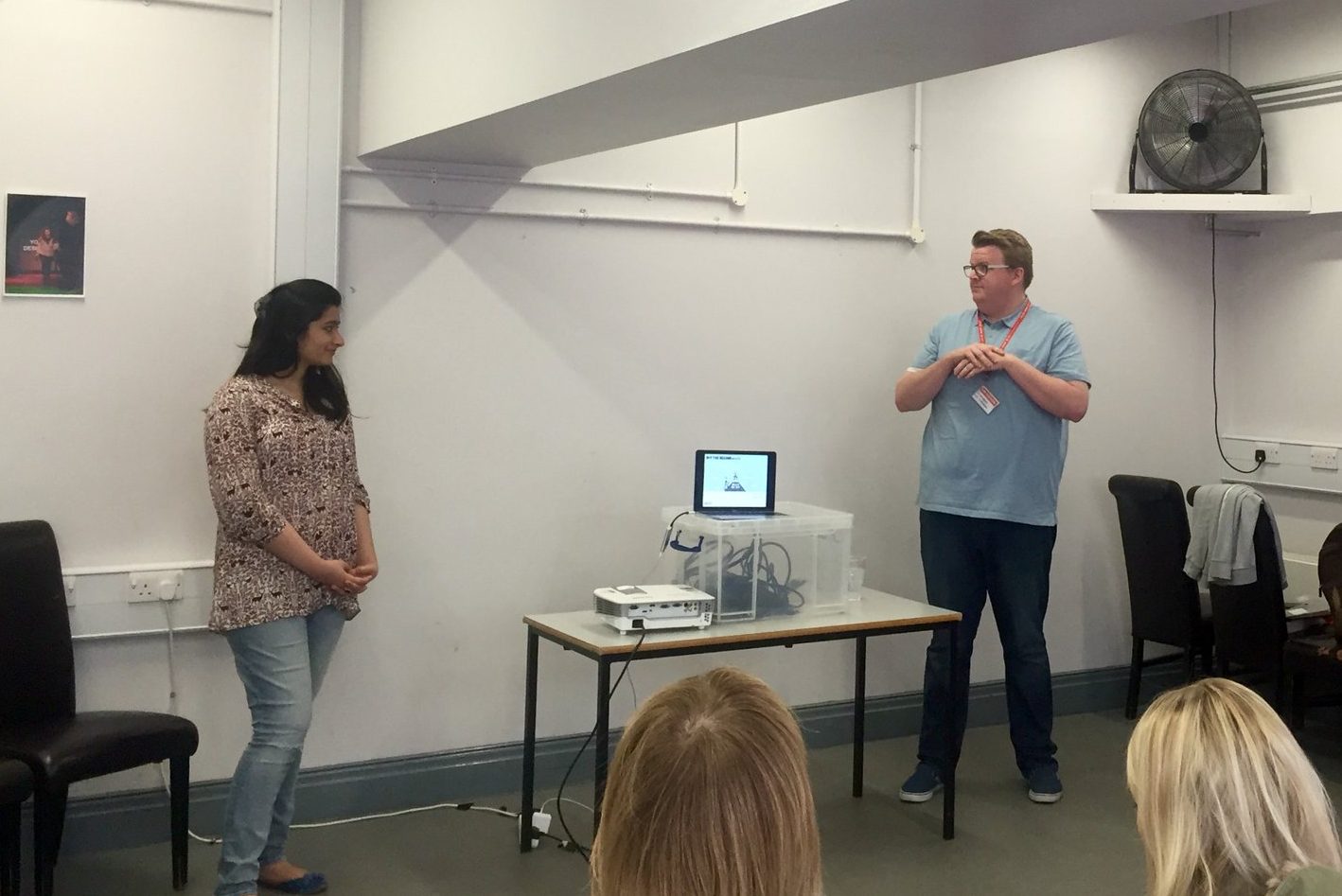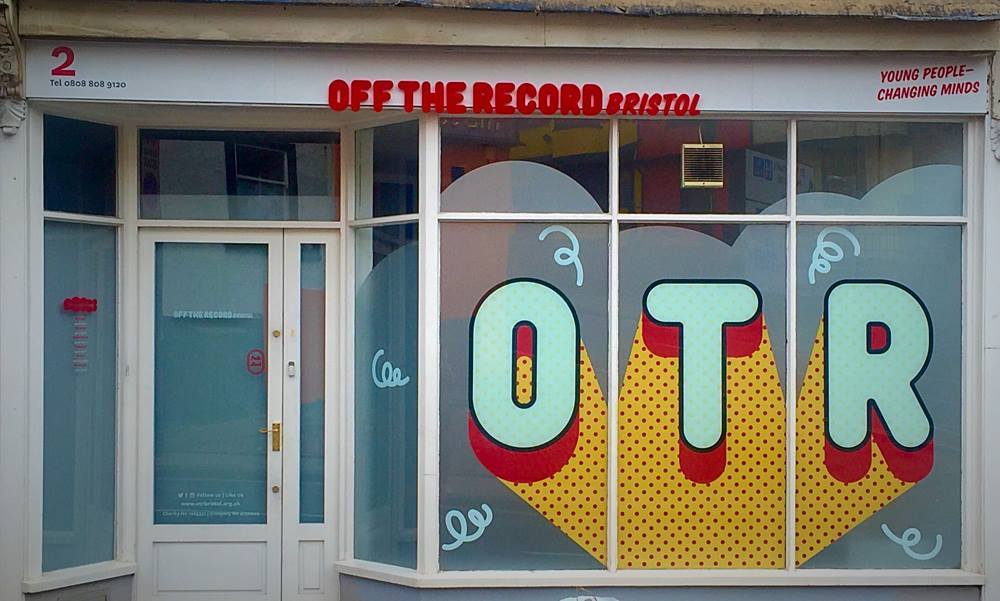Hi I’m Samya, I’m a second-year medical student at Bristol Uni and I joined the OTR Advisors after having experienced first-hand how fantastic OTR is and wanting to give something back for the significant effect it has had on my life.

Samya delivering an OTR open morning to professionals
The work done here is invaluable, even with increased challenges posed by the government. Since 2010 mental health services have had to withstand £50 million in cuts. Even with the negatively correlated relationship between a sinking budget and rising service demand, OTR has gone from strength to strength.
Below are the reasons why I decided to work with Off the Record as part of this group:
- It’s Open Minded.
Creating this unique Young Advisor role itself speaks highly of the charity’s commitment to delivering a first-rate service. Though our meetings are informal, Simon (CEO) is (almost!) always present. Our views are taken into account when key decisions are made; for example this year we contributed towards the five year business plan.
- It’s Tough.
Much like the principles it teaches in the Resilience Lab; the stress management and self-care workshop it runs for 16-25 year olds every Wednesday. It practices what it preaches 🙂
- It’s Revolutionary.
In the UK 1 in 4 people experience a mental health problem every year. They are misunderstood, with demoralising language used against them – “He’s such a psycho” or “She’s OCD; its abnormal and so annoying!” – Stigma attached to self-harm, depression, anxiety and psychosis along with gender discrimination and racism are just a few issues which OTR has challenged though its award winning workshops: Mentality, Freedom, Zaazi, Mind Aid and Harm/Less. There is so much more to it than just counselling!
No matter which service you choose under the OTR umbrella the ethos shines through: to empower young people; to equip them with tools to not only help themselves but also those experiencing similar situations; to remind them that there are no boundaries apart from the ones we create in our own minds – we only have to change the way we think.

Yet it also recognises how difficult this can be. Thus the variety of options are available to suit each individual’s needs: group workshops, social campaigns, 1:1 counselling and art therapy.
Despite the fact psychological issues cost us over £100 billion a year, spending on these services amounts to only 13% of the total NHS budget (NHS England, 2014). Only 6% of this goes toward CAMHS, which is appalling given half of all adult mental health problems (excluding dementia) start before age 15.
The final reason that attracted me towards this role was so that I could learn about how services are run, the complexities they face and how they’re overcome. By understanding these challenges on a local scale, I hope to better understand how the health service functions on a national scale, thus in turn becoming a more flexible/resourceful clinician.
Samya